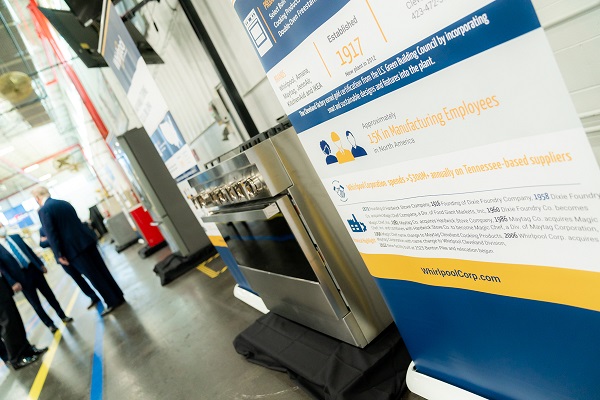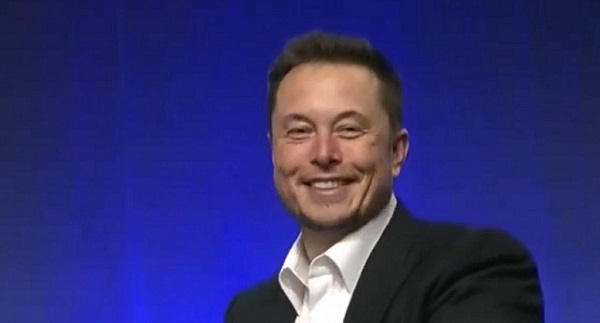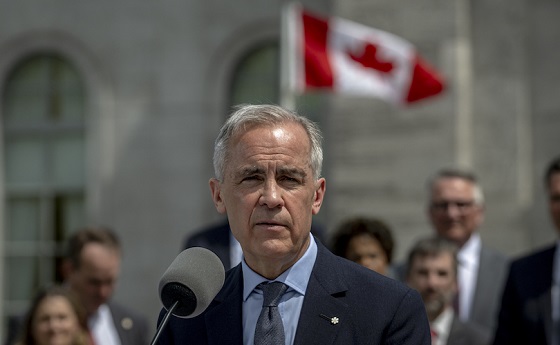Business
Trump’s first jobs report: Manufacturing roars back, reversing Biden-era losses

 MxM News
MxM News
Quick Hit:
America’s manufacturing sector is roaring back under President Donald Trump, reversing the steep job losses of the Biden era. February’s jobs report shows a surge in auto industry hiring, a major turnaround from Biden’s final year in office. White House Press Secretary Karoline Leavitt credited Trump’s pro-growth policies, declaring, “The American economy is soaring back to greatness.”
Key Details:
-
The U.S. added 10,000 manufacturing jobs in February, a sharp reversal from Biden’s final year, which saw an average loss of 9,000 per month.
-
The auto industry gained 8,900 jobs, the highest increase in 15 months, after shedding 27,300 jobs under Biden in 2023.
-
Private sector job growth accounted for 93% of February’s gains, showing strong business confidence in Trump’s economic policies.
Diving Deeper:
America’s manufacturing sector is making a swift comeback under President Donald Trump, with February’s jobs report showing significant growth in the industry. The sharp turnaround follows a year of manufacturing decline under Joe Biden, who oversaw the loss of 111,000 jobs in the sector.
The auto industry has been a major driver of this resurgence, adding nearly 9,000 jobs in February—the most in over a year. This growth stands in stark contrast to 2023 when the sector shed tens of thousands of jobs under Biden’s economic policies. White House Press Secretary Karoline Leavitt credited Trump’s leadership, stating, “The American economy is soaring back to greatness after the economic calamity left by Joe Biden.”
Economic confidence is also on the rise. S&P Global’s U.S. manufacturing survey reached its highest level since mid-2022, while the Manufacturing ISM Report on Business entered expansion territory after more than two years of contraction. These indicators suggest businesses are ramping up production, hiring workers, and responding favorably to Trump’s economic agenda.
With private sector growth leading the way and key economic indicators showing strength, the Trump Administration is setting the stage for continued economic momentum. As White House put it, “President Trump is just getting started.”
Automotive
Elon Musk Poised To Become World’s First Trillionaire After Shareholder Vote


From the Daily Caller News Foundation
At Tesla’s Austin headquarters, investors backed Musk’s 12-step plan that ties his potential trillion-dollar payout to a series of aggressive financial and operational milestones, including raising the company’s valuation from roughly $1.4 trillion to $8.5 trillion and selling one million humanoid robots within a decade. Musk hailed the outcome as a turning point for Tesla’s future.
“What we’re about to embark upon is not merely a new chapter of the future of Tesla but a whole new book,” Musk said, as The New York Times reported.
Dear Readers:
As a nonprofit, we are dependent on the generosity of our readers.
Please consider making a small donation of any amount here.
Thank you!
The decision cements investor confidence in Musk’s “moonshot” management style and reinforces the belief that Tesla’s success depends heavily on its founder and his leadership.
Tesla Annual meeting starting now
https://t.co/j1KHf3k6ch— Elon Musk (@elonmusk) November 6, 2025
“Those who claim the plan is ‘too large’ ignore the scale of ambition that has historically defined Tesla’s trajectory,” the Florida State Board of Administration said in a securities filing describing why it voted for Mr. Musk’s pay plan. “A company that went from near bankruptcy to global leadership in E.V.s and clean energy under similar frameworks has earned the right to use incentive models that reward moonshot performance.”
Investors like Ark Invest CEO Cathie Wood defended Tesla’s decision, saying the plan aligns shareholder rewards with company performance.
“I do not understand why investors are voting against Elon’s pay package when they and their clients would benefit enormously if he and his incredible team meet such high goals,” Wood wrote on X.
Norway’s sovereign wealth fund, Norges Bank Investment Management — one of Tesla’s largest shareholders — broke ranks, however, and voted against the pay plan, saying that the package was excessive.
“While we appreciate the significant value created under Mr. Musk’s visionary role, we are concerned about the total size of the award, dilution, and lack of mitigation of key person risk,” the firm said.
The vote comes months after Musk wrapped up his short-lived government role under President Donald Trump. In February, Musk and his Department of Government Efficiency (DOGE) team sparked a firestorm when they announced plans to eliminate the U.S. Agency for International Development, drawing backlash from Democrats and prompting protests targeting Musk and his companies, including Tesla.
Back in May, Musk announced that his “scheduled time” leading DOGE had ended.
Business
Carney’s Deficit Numbers Deserve Scrutiny After Trudeau’s Forecasting Failures

From the Frontier Centre for Public Policy
By Conrad Eder
Frontier Centre for Public Policy study reveals a decade of inflated Liberal forecasts—a track record that casts a long shadow over Carney’s first budget
The Frontier Centre for Public Policy has released a major new study revealing that the Trudeau government’s federal budget forecasts from 2016 to 2025 were consistently inaccurate and biased — a record that casts serious doubt on the projections in Prime Minister Mark Carney’s first budget.
Carney’s 2025–26 federal budget forecasts a $78.3-billion deficit — twice the size projected last year and four times what was forecast in Budget 2022. But if recent history is any guide, Canadians have good reason to question whether even this ballooning deficit reflects fiscal reality.
The 4,000-word study, Measuring Federal Budgetary Balance Forecasting Accuracy and Bias, by Frontier Centre policy analyst Conrad Eder, finds that forecast accuracy collapsed after the Trudeau government took office:
- Current-year forecasts were off by an average of $22.9 billion, or one per cent of GDP.
- Four-year forecasts missed the mark by an average of $94.4 billion, or four per cent of GDP.
- Long-term projections consistently overstated Canada’s fiscal health, showing a clear optimism bias.
Eder’s analysis shows that every three- and four-year forecast under Trudeau predicted a stronger financial position than what actually occurred, masking the true scale of deficits and debt accumulation. The study concludes that this reflects a systemic optimism bias, likely rooted in political incentives: short-term optics with no regard to long-term consequences.
“With Prime Minister Carney now setting Canada’s fiscal direction, it’s critical to assess his projections in light of this track record,” said Eder. “The pattern of bias and inaccuracy under previous Liberal governments gives reason to doubt the credibility of claims that deficits will shrink over time. Canadians deserve fiscal forecasts that are credible and transparent — not political messaging disguised as economic planning.”
The study warns that persistent optimism bias erodes fiscal accountability, weakens public trust and limits citizens’ ability to hold government to account — a threat to both economic sustainability and democratic transparency.
-

 Justice1 day ago
Justice1 day agoCarney government lets Supreme Court decision stand despite outrage over child porn ruling
-

 Business1 day ago
Business1 day agoCarney’s budget spares tax status of Canadian churches, pro-life groups after backlash
-

 COVID-191 day ago
COVID-191 day agoFreedom Convoy leader Tamara Lich to appeal her recent conviction
-

 Daily Caller2 days ago
Daily Caller2 days agoUS Eating Canada’s Lunch While Liberals Stall – Trump Admin Announces Record-Shattering Energy Report
-

 Business2 days ago
Business2 days agoThe Liberal budget is a massive FAILURE: Former Liberal Cabinet Member Dan McTeague
-

 Daily Caller1 day ago
Daily Caller1 day agoUN Chief Rages Against Dying Of Climate Alarm Light
-

 Business2 days ago
Business2 days agoPulling back the curtain on the Carney government’s first budget
-

 Energy2 days ago
Energy2 days agoEby should put up, shut up, or pay up










